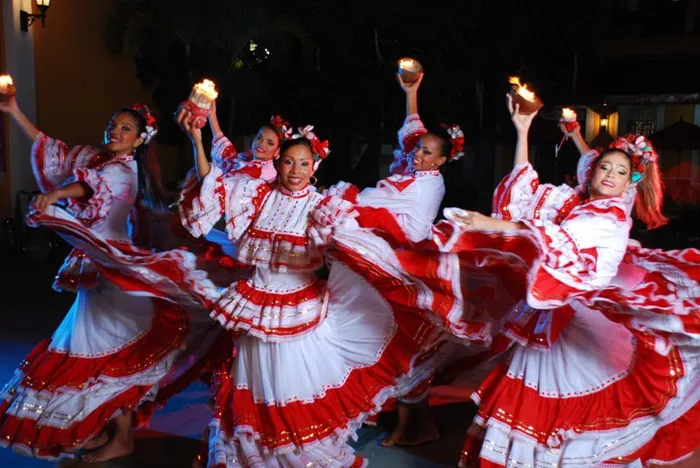For over two decades, Masaki Narahara — better known as DJ Masaki69 — has brought Latin rhythms to bars and parties around Tokyo. His collection of vinyl records is vast, with more than 4,000 albums. It’s filled with classic tropical hits from Latin America and unexpected gems, including records from Ricky Martin’s former boy band, Menudo.
“Do you know Menudo?” he laughs. “I have a lot of their records. I don’t even know why I keep them!”
Masaki is part of a growing underground music scene in Japan. In bars and small live venues, genres like old-school salsa, son, Latin hip-hop, and cumbia are winning over Japanese fans.
Masaki says Japan’s passion for Latin music began during the Golden Age of Tropical Music in the mid-20th century. He first heard the music from his father.
“After World War II, in the 1950s and 60s, Latin music was very popular in Japan,” he recalls. “My father had records by Pérez Prado and Tito Puente.”
At the time, the Mexican trio Los Panchos had a strong following in Japan. Local musicians also began performing mambo, chachachá, and bolero songs — but with a Japanese flavor. One of the most popular singers of the era, Chiemi Eri, covered Latin hits in Japanese. Her version of Perry Como’s “Papa Loves Mambo” was called “Papa Wa Mambo Ga Osuki.”
Masaki believes Latin music appeals to many Japanese listeners because it offers a break from the pressures of daily life and rigid social expectations.
“Japanese people are always thinking about what others think,” he says. “They want to act like Latino people — more freely — but they’re a little shy and reserved.”
In Kanagawa, on the outskirts of Tokyo, DJ Pancho brings Latin beats to the local scene. He is half Dominican and half Japanese, but his look reflects East Los Angeles culture — from baggy Dickies pants and a flat-brimmed cap to tattoos and sunglasses. His music sets are filled with cumbia legends like Los Ángeles Azules, Grupo 5, and Selena.
Shin Miyata, a Tokyo-based producer who studied Chicano Studies at East LA College in the 1980s, runs a record label and hosts Chicano-themed events. He says there are two groups in Japan’s Latin music community: those who enjoy traditional Latin sounds, and those who embrace the Chicano culture, music, and fashion.
“People here got inspired by hip-hop movies and videos in the ’90s, or by older styles from the ’60s, like Pachuco and Chicano soul,” Miyata explains. “So the cumbia market and Chicano soul scene are sometimes different here.”
He says Japanese interest in Mexican American and Chicano culture began in the early 1990s with movies like Blood In Blood Out and hip-hop acts like Cypress Hill.
“There’s always been something in common between Japanese and Mexican people,” he says. He points to strong family values and a shared sense of romanticism. Still, he hopes Japanese fans will learn more about the struggles behind the culture they admire.
“We Japanese often focus only on the surface,” he says. “But I want people to understand the deeper side, too.”
A Japanese Take on Cumbia
Ayumi Nobe, known as DJ Pope, has performed across Latin America and California. She says more and more Japanese musicians are putting their own spin on Latin music.
Groups like Los Tequila Cokes, Rojo Regalo, Mumbia y sus Candelosos, Mochilero, and the internationally recognized Minyō Crusaders are all part of this trend. The Minyō Crusaders are featured in the new documentary Bring Minyō Back!.
“Minyō Crusaders mix minyō — a traditional Japanese music style — with Latin rhythms,” Pope explains. “It’s really original.”
She says Japan’s Latin music scene is still small, but it’s welcoming and full of energy.
“If you ever come to Japan,” she says with a smile, “we’ll share it with you — and maybe even party with you!”
Related Topics

